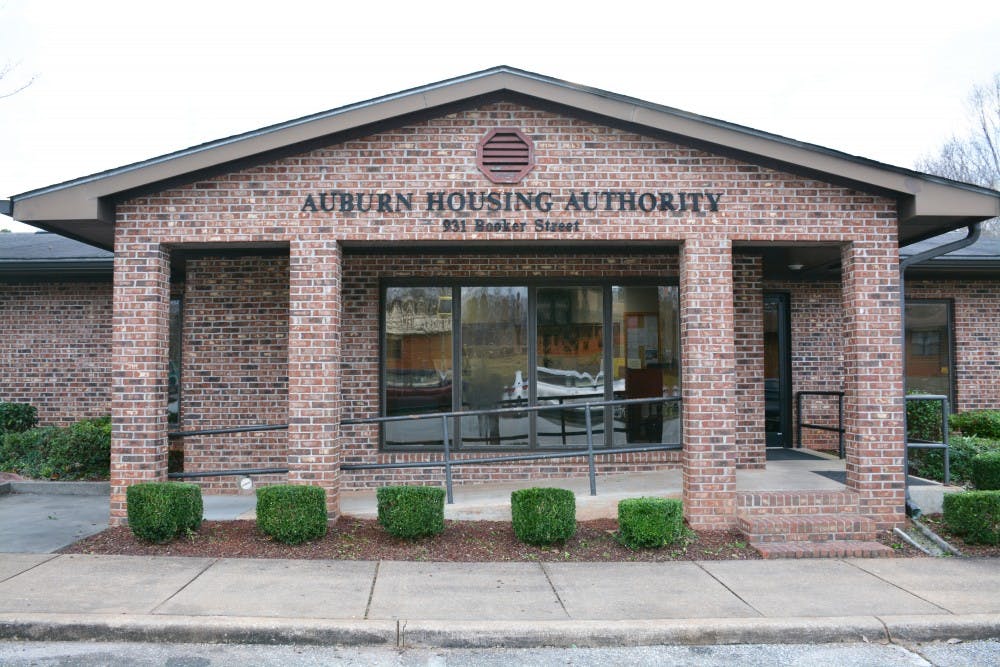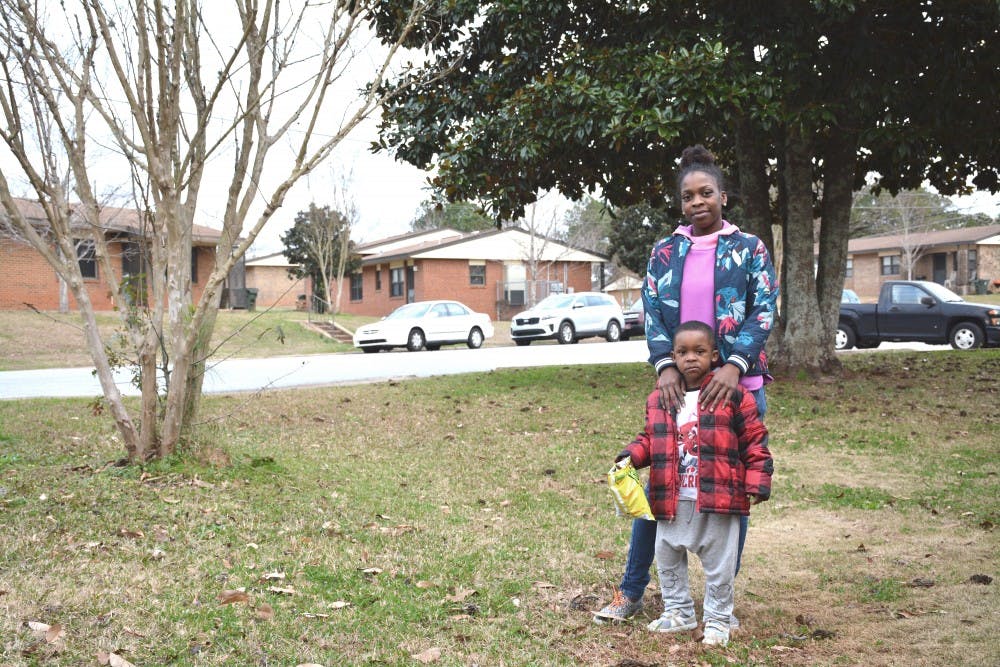The clock taunts the residents of Ridgecrest. They’re spellbound by how a month of a partial government shutdown can drag so slowly, yet chug along at such brisk, unconcerned pace.
The residents here — where a disabled veteran plays outside with his 3-month-old and where single mothers come back home tired from a day working — are residents of public housing who rely on subsidies from the federal government.
Their homes could soon be at the mercy of the country’s longest government shutdown — so long as the stalemate in Congress stands and funding for housing and urban development remains dry.
The U.S. Department of Housing and Urban Development, through subsidies, pays landlords, provides utility allowances like electricity and water and helps with other bills for extremely low-income people.
The department is closed. And if the impasse continues into February, the Auburn Housing Authority could join 3,300 other municipal housing authorities buried under the unshifting weight of the shutdown.
For Gabrielle Johnson, who swears she gives the best hair care in Auburn as a hairdresser, the shutdown has tied her thoughts into a knot.
She raises her 3-year-old son Bryson-Elijah and 6-month-old daughter Amelia by herself — if you don’t count the occasional help of Mickey Mouse on TV when she needs a break.
Having her first kid led to her moving into Ridgecrest.
“The most useful thing a single mother can have is assistance,” Johnson said, explaining why circumstances led her to public housing.
That assistance might be taken away.
Every month, the government helps her with $400 to $500, which covers the cost of rent at Ridgecrest.
Assuming the shutdown lasts into February, this funding from the government will run out, and Jonson will be asked to pay the rent, an amount impossible for her to produce.
“It’s stressful, but I don’t let it affect my mentality,” Johnson said, reaching for her youngest, whose pigtails barely reach an inch. “I can’t afford to.”

The Auburn Housing Authority oversees public housing in Auburn.
Most people that live here, she said, are single parents with no one to turn to but themselves. It explains why at 3 p.m. Ridgecrest bustles with mothers dropping off their kids at home before returning to work.
When she reads about the shutdown or sees arguments on social media, it makes her smirk. All the people eating away time with their rants and speeches, and she’s the one who relies on food assistance, keeping the possibility of hungry children and homelessness to herself.
“The small stuff that you usually stress about, now you got to look at the big picture and plot plan and strategize,” Johnson said, acknowledging the very real possibility of a prolonged shutdown.
Hearing people like Johnson, who live with the fear of hunger, is something Martha Henk, executive director of the Food Bank of East Alabama, takes seriously.
Henk expressed concern regarding the shutdown and how it could affect the people they try to feed.
There’s only so much that can be done, she admits, but being proactive is necessary.
“What we’re doing at this point, for people who are impacted by the shutdown, is we’re integrating those into the existing network of agencies … and we’re telling these agencies that the need is likely going to increase substantially,” Henk said.
That need could come from a potential end to the Supplemental Nutrition Assistance Program, formerly known as food stamps, which is destined to arise if the shutdown continues. The USDA, which is responsible for the distribution of SNAP benefits, has funding through February.
To ensure people received their SNAP benefits for February, the USDA issued them earlier than usual on Jan. 20.
But the money will run out, and people will still need to eat.
For Johnson — and some 813,000 Alabamians who rely on SNAP and the 93,000 who rely on federal rental assistance — the question becomes: What will we do in March?
This question hovers above a family that also resides in Ridgecrest. The answers are there, they said. They just don’t want to see it.
Daniel Whitfield and Dakota Elsey sit inside their home with a too-sick-for-school 10-year-old between them. He coughs occasionally and looks up at his father when he speaks on what they will do if the shutdown doesn’t end.
“I’m fixing to start growing my own food,” Whitfield said, throwing a big smile to his girlfriend Elsey.
She’s lived here for 10 years. The Great Recession plunged her to the lowest rungs of poverty. It’s been a long, unsteady climb since, and the shutdown’s shaking the foundation.
“It’s going to get ugly,” Elsey said. “I have a feeling it’s going to hurt us. I just hope we don’t have to move.”
There’s really no place to turn to from here, Whitfield adds. He takes out a cigarette, backs away from his son and puffs out the door. His shift at the plant is about to start in an hour.
“It’s disappointing. To be honest ... people are already struggling; that’s the whole purpose of public housing,” Whitfield said.
The thought of February coming, and money not, is worrying.
“Makes me anxious, you know, trying to figure out how I’m going to get things together,” Whitfield said, his gaze shifting toward the silver Buick parked outside, waiting to take him to work.
Their son listened, looking at his parents with creases lining his forehead — too young to understand, but not old enough to forego.
“We’ll take it day by day,” Whitfield said.
They said they just wish the president and Congress didn’t do so, too.
Do you like this story? The Plainsman doesn't accept money from tuition or student fees, and we don't charge a subscription fee. But you can donate to support The Plainsman.





